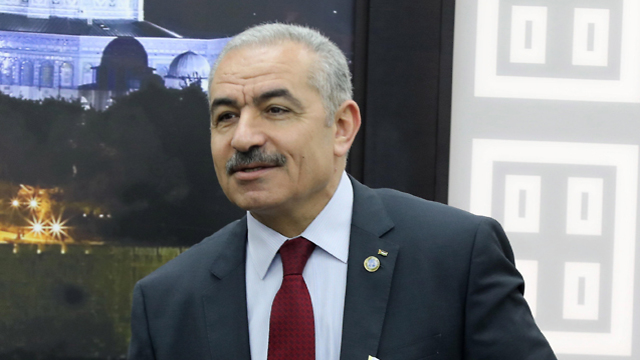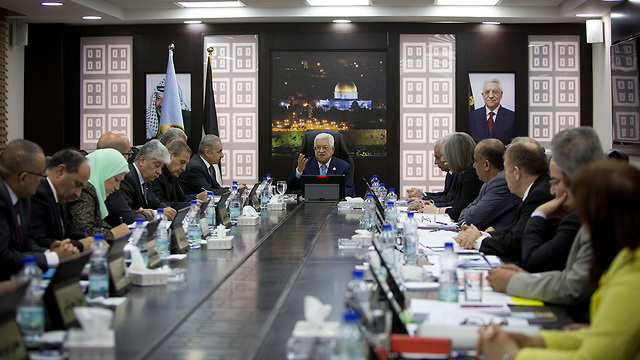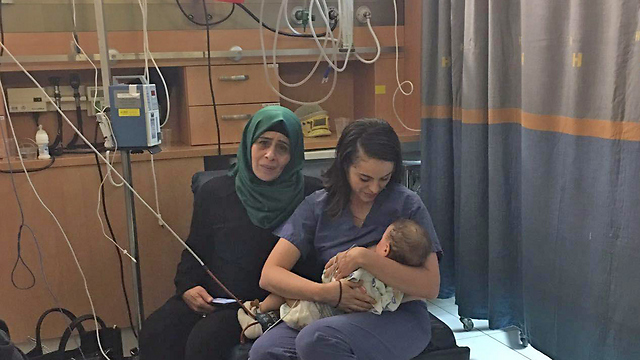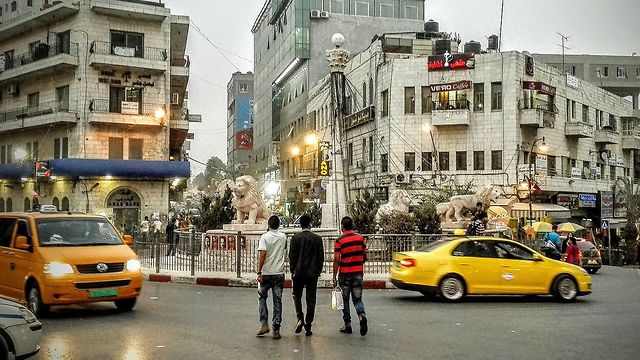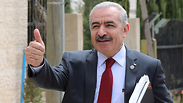
Palestinian PM: Israel wants to destroy our economy
Palestinian Authority asks World Bank to monitor Jewish state’s policy of withholding tax transfers over PA payments for attacks against Israelis
He made the request during a meeting in Ramallah on May 9 with Kanthan Shankar, the World Bank’s new director for the Palestinian territories.
Shtayyeh, according to a statement released by the Palestinian cabinet, urged the World Bank to align its projects with Palestinian priorities, thereby supporting the economy and creating jobs.
“Israel wants to destroy the Palestinian economy and exhaust it by deducting money from clearing funds and manipulating, as well as stealing, money that is owed to the (Palestinian) Authority,” Shtayyeh said in the statement.
Shankar promised to raise the level of coordination so that the World Bank’s projects support the priorities of the Palestinian government.
For more than two decades, Israel has deducted monies beyond the 3 percent commission specified in the 1994 Paris Protocol, from the clearing funds it collects on behalf of the Palestinian Authority. These funds include taxes on imports to the Palestinian territories as well as income taxes on Palestinians working in Israel.
The Israeli government says these additional deductions − more than $5 million per month in some cases − pay for treatment given to Palestinians in Israeli hospitals and delinquent utility bills.
“What is happening is a change to the status that was based on the terms of the Paris Protocol agreement that had been signed between the Palestinian Authority and Israel,” Azmi Abd al-Rahman, the Palestinian Economy Ministry spokesperson, told The Media Line.
Rahman explained that Israel was deducting money instead of waiting for electricity and water bills to be paid, as well as for medical transfers and traffic tickets.
“These deductions are not included in the signed agreement,” he said.
Rahman explained that after Israel transferred the clearing funds to the PA less the 3% commission, the Palestinian side was supposed to determine and pay whatever the PA owned Israel. He said that withholding these funds before the tax money was transferred to the Palestinian side violated the agreement.
“We are witnessing a clear change that is more than a correction,” he elaborated.
Bishara Dabah, a Palestinian economic analyst, confirmed that previously, billing between Israel and the PA wasn’t reviewed properly and that Israel was deducting amounts that were now being carefully monitored by the Palestinian side.
“Prime Minister Shtayyeh wants to make sure and get back all of the amounts that were deducted not in accordance with the signed agreement,” Dabah said
The Paris Protocol, also called the Protocol on Economic Relations, was signed by Israel and the PLO and incorporated, with minor amendments, into the 1995 Oslo II Accord. It specifies that the Israeli government will collect the clearing funds on behalf of the PA for a commission of 3%, and transfer the balance to the Palestinian Interior Ministry.
In July 2018, the Israeli cabinet approved a law to withhold tax revenue from the PA equal to the amount the PLO pays to Palestinian security prisoners in Israeli jails and to the families of those who died in violent encounters with Israelis. In February 2019, for example, Israel withheld some $138 million from the tax revenue, the equivalent of 65% of the PA’s total monthly revenue.
Israel insists these prisoners and slain Palestinians are or were terrorists.
In February and March of this year, the deductions and resulting budget shortage led the PA to pay its employees only 50% of their salaries, and in April, 60%.
Recently, the World Bank called for an urgent solution to the Palestinian economic crisis, which it blamed in large part on Israel’s withholding of the tax funds.
Many in Israel’s defense establishment are said to be against withholding the revenues, fearing that a budgetary shortfall in the PA could lead to diminished security cooperation and ultimately the destabilization of the West Bank.
On May 7, Qatar promised a total of $480 million in grants and loans to the PA in the West Bank and to Hamas, the armed Islamic group that rules the Gaza Strip. Some $300 million is earmarked to alleviate the PA’s deepening financial crisis, while the rest of the money goes toward humanitarian projects, primarily in Gaza.










